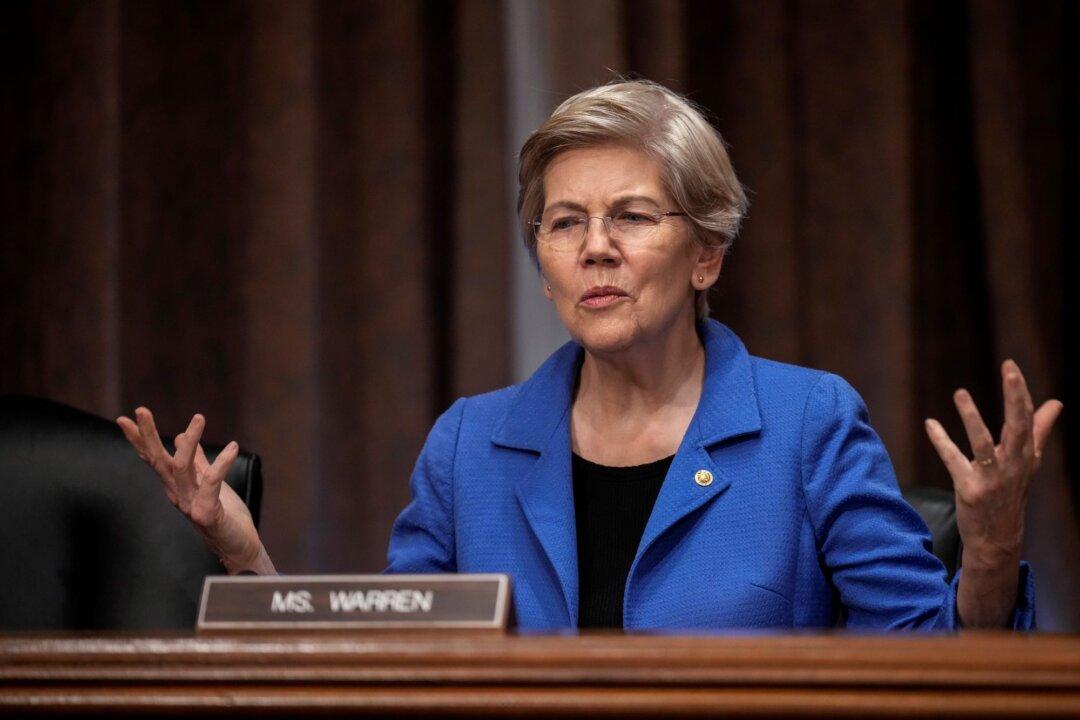Sen. Elizabeth Warren (D-Mass.) urged her fellow Democrats not to compromise with Republicans in fighting for tax increases for billionaires and corporations as Congress is set to reexamine tax policy next year upon the expiration of Trump-era tax cuts.
Ms. Warren said in a speech before the Washington Center for Equitable Growth on June 17 that progressive taxation is necessary to help fund social programs and improve the nation’s fiscal position.





